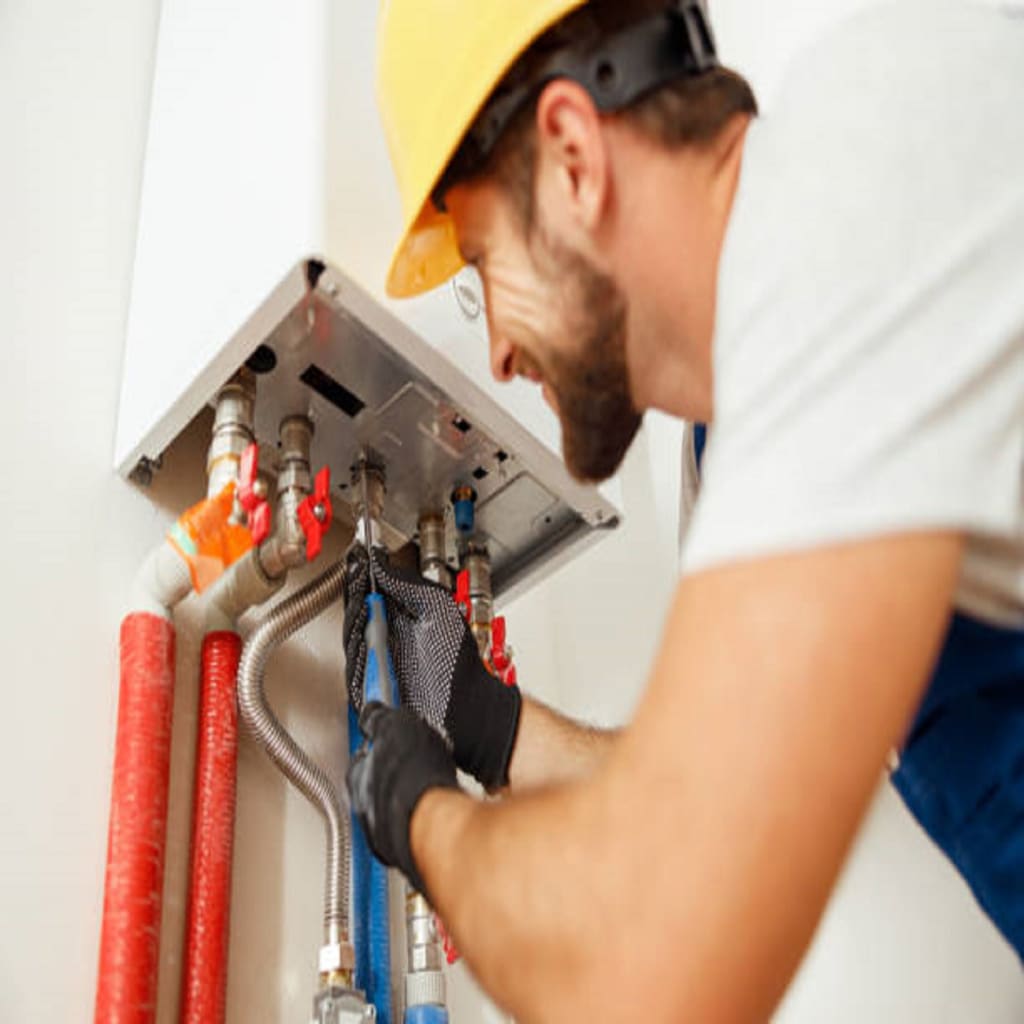The Importance of Regular Heating System Maintenance for Efficiency, Cost Savings, and Longevity
Explore the importance of servicing heating systems regularly, highlighting the benefits and providing tips for proper maintenance.

Heating systems are an essential part of any home, especially in regions that experience cold winters. These systems ensure comfort and safety by maintaining a warm indoor environment. However, like any other mechanical system, heating systems require regular maintenance to operate efficiently, save energy, reduce costs, and extend their lifespan. This blog explores the importance of servicing heating systems regularly, highlighting the benefits and providing tips for proper maintenance.
Why Regular Maintenance is Crucial
1. Enhanced Efficiency
Heating systems that are not regularly serviced can lose efficiency over time. Dust, dirt, and other debris can accumulate in various parts of the system, such as the filters, burners, and heat exchangers. This buildup can obstruct airflow, cause components to work harder than necessary, and ultimately reduce the system’s overall efficiency.
A well-maintained heating system runs more efficiently, which means it uses less energy to produce the same amount of heat. Regular cleaning and inspection of key components ensure that the system operates at its optimal performance level. An efficient heating system not only provides consistent warmth but also reduces the energy consumption, leading to lower utility bills.
2. Cost Savings
Regular maintenance can lead to significant cost savings in several ways:
Lower Energy Bills: As mentioned earlier, a well-maintained heating system operates more efficiently, consuming less energy. This directly translates to lower energy bills.
Preventing Costly Repairs: Routine inspections can identify potential issues before they become major problems. Addressing minor issues early can prevent costly repairs down the line. For example, a small leak in a boiler can be fixed relatively inexpensively if caught early, but if left unattended, it can cause significant damage and require costly repairs or even a complete replacement.
Extended Lifespan: Regular servicing can extend the lifespan of your heating system. By keeping all components in good working order and addressing any issues promptly, you can avoid premature system failures and the need for expensive replacements. Learn more.
3. Improved Safety
Heating systems, especially those that use natural gas or oil, can pose safety risks if not properly maintained. A malfunctioning system can lead to dangerous situations such as carbon monoxide leaks, which can be life-threatening. Regular maintenance includes checking for gas leaks, ensuring proper ventilation, and verifying the integrity of safety controls, reducing the risk of hazardous incidents.
4. Consistent Comfort
A heating system that is not working properly can result in uneven heating, cold spots, and an overall uncomfortable living environment. Regular maintenance ensures that the system can distribute heat evenly and maintain a consistent indoor temperature, providing a more comfortable living space.
5. Environmental Benefits
Energy efficiency is not only beneficial for homeowners but also for the environment. Efficient heating systems consume less fuel, reducing greenhouse gas emissions and the overall carbon footprint. Regular maintenance contributes to the global effort to combat climate change by ensuring that your heating system operates as cleanly and efficiently as possible.
Key Components of Heating System Maintenance
Maintaining a ducted heating system involves several key tasks that should be performed regularly by a qualified technician. Here are some of the critical components and maintenance activities:
1. Filters
Filters are essential for trapping dust, dirt, and other particles, preventing them from entering the heating system and circulating through the home. Dirty or clogged filters can obstruct airflow, reduce efficiency, and strain the system. Filters should be checked and replaced every 1-3 months, depending on the type and usage.
2. Thermostat
The thermostat controls the heating system, ensuring that the desired temperature is maintained. It should be calibrated regularly to ensure accurate readings and proper functioning. Inaccurate thermostats can cause the system to run longer than necessary, wasting energy and increasing costs.
3. Burners
Burners are responsible for igniting the fuel and producing heat. Over time, they can become dirty or corroded, affecting their performance. Regular cleaning and inspection of burners ensure efficient combustion and prevent potential safety hazards.
4. Heat Exchanger
The heat exchanger transfers heat from the combustion process to the air or water that is circulated throughout the home. Cracks or corrosion in the heat exchanger can lead to dangerous carbon monoxide leaks. Regular inspections are crucial to detect and address any issues with the heat exchanger.
5. Blower Motor and Belts
The blower motor and belts are responsible for distributing heated air throughout the home. These components should be inspected for wear and tear, cleaned, and lubricated as necessary. Faulty blower motors or worn-out belts can reduce efficiency and cause the system to overheat.
6. Ductwork
Leaky or poorly insulated ducts can lead to significant heat loss, reducing the overall efficiency of the heating system. Regular inspection and sealing of ducts can prevent heat loss and ensure that the system operates efficiently.
7. Flue and Ventilation
Proper ventilation is crucial for the safe operation of heating systems, especially those that burn fuel. The flue and ventilation system should be checked regularly to ensure that exhaust gases are properly vented outside and that there are no blockages or leaks.
DIY Maintenance Tips
While professional maintenance is essential, there are several tasks that homeowners can perform to keep their heating systems in good condition between professional service visits:
1. Check and Replace Filters
As mentioned earlier, filters should be checked and replaced regularly. This is a simple task that can be done by homeowners to ensure proper airflow and efficiency.
2. Keep Vents and Registers Clean
Dust and debris can accumulate in vents and registers, obstructing airflow and reducing efficiency. Regularly vacuuming and cleaning these areas can help maintain optimal airflow.
3. Monitor the Thermostat
Ensure that the thermostat is functioning correctly and set to the desired temperature. If you notice any discrepancies or if the system seems to be running excessively, it may be time to have the thermostat inspected and calibrated by a professional.
4. Keep the Area Around the Heating System Clean
Ensure that the area around the heating system is free of clutter and debris. This helps maintain proper airflow and reduces the risk of fire hazards.
5. Listen for Unusual Noises
Pay attention to any unusual noises coming from the heating system. Strange sounds can indicate potential issues that need to be addressed by a professional technician.
Professional Maintenance Checklist
A professional heating system service typically includes a comprehensive inspection and maintenance of various components. Here is a checklist of tasks that a qualified technician will perform during a routine maintenance visit:
1. Inspect and Clean Burners
The technician will inspect the burners for cleanliness and proper operation. They will clean any accumulated debris and ensure that the burners are igniting correctly and burning efficiently.
2. Check the Heat Exchanger
The heat exchanger will be inspected for cracks, corrosion, or any signs of damage. This is a critical step to prevent carbon monoxide leaks and ensure safe operation.
3. Test the Thermostat
The thermostat will be tested and calibrated to ensure accurate temperature control. The technician will check for any issues with the wiring or connections.
4. Inspect and Lubricate the Blower Motor
The blower motor and its components will be inspected for wear and tear. The technician will clean and lubricate the motor to ensure smooth operation.
5. Check and Seal Ductwork
The technician will inspect the ductwork for leaks or poor insulation. Any issues will be addressed to prevent heat loss and improve efficiency.
6. Inspect the Flue and Ventilation System
The flue and ventilation system will be checked for blockages or leaks. The technician will ensure that exhaust gases are being properly vented outside.
7. Test Safety Controls
Safety controls, such as the high-limit switch and pressure relief valve, will be tested to ensure they are functioning correctly. These controls are essential for preventing overheating and other dangerous situations.
8. Check Fuel Lines and Connections
For systems that use natural gas or oil, the technician will inspect the fuel lines and connections for leaks or damage. This step is crucial for preventing gas leaks and ensuring safe operation.
Conclusion
Regular maintenance of heating systems is essential for ensuring their efficient and safe operation. By keeping your heating system well-maintained, you can enjoy numerous benefits, including lower energy bills, reduced repair costs, improved safety, and a more comfortable living environment. Both homeowners and professional technicians play a crucial role in maintaining heating systems, and a combination of DIY tasks and professional inspections can help keep your system running smoothly throughout the year.
Investing in regular maintenance not only saves money in the long run but also contributes to a greener planet by reducing energy consumption and greenhouse gas emissions. Don’t wait until your heating system breaks down; schedule regular maintenance and enjoy the peace of mind that comes with a well-functioning and efficient heating system.
About the Creator
Enjoyed the story? Support the Creator.
Subscribe for free to receive all their stories in your feed. You could also pledge your support or give them a one-off tip, letting them know you appreciate their work.





Comments (1)
Hey, just wanna let you know that this is more suitable to be posted in the Lifehack community 😊